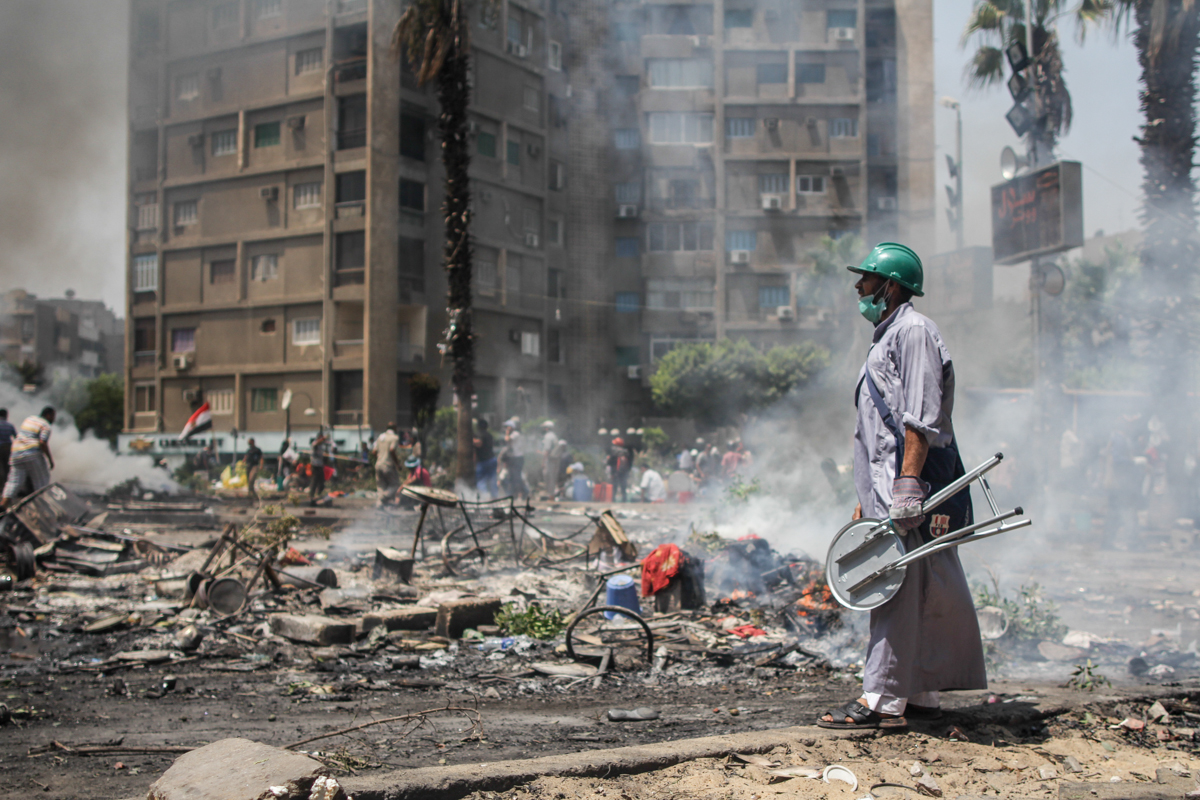Interior Minister Mohammed Ibrahim authorized police to use deadly force to protect themselves and state institutions as violence broke out across Egypt in response to the government’s decision to forcibly clear the protest camps at Raba’a al-Adaweya and Nahda Square. Churches were burned, police stations were attacked, and roads were blocked as Islamists, angered by the violence used by security forces, expressed their rage.
The latest accounting of casualties was 578 killed and over 4,200 injured, according to the Ministry of Health. Of the dead, 318 occurred in Cairo and 260 elsewhere in Egypt. Reuters reported 623 dead, but did not list a source or methodology. Many suggested that the number of casualties would rise further.
There were fears on Thursday that confrontations may continue. The Muslim Brotherhood called on its supporters to protest on Friday to demonstrate their outrage over the dispersal of the sit-ins. The National Salvation Front, an alliance of secular parties, also called for marches, but in support of the military-backed government’s actions. Across the country and in Cairo in particular, people stayed home, fearing violence on the streets.
Many countries expressed their disappointment with the Egyptian government’s actions. American authorities began debating the merits of cutting off aid and the effect that such an action may have on the stability of Egypt. The U.S. canceled planned joint exercises with the Egyptian military. In a statement, President Barack Obama said that “our traditional cooperation cannot continue as usual when civilians are being killed in the streets and rights are being rolled back.” The European Union requested that its members consider “appropriate measures” to take in their relationships with Egypt. Germany said it would rethink its support for the Egyptian regime, Denmark cut its aid, and Britain and France summoned their Egyptian ambassadors to demonstrate their displeasure. Turkey called for an emergency meeting of the U.N. Security Council. Saudi Arabia, however, expressed their support for the crackdown.
The New York Times reported that the Salafist Nour Party, the liberal April 6 Movement, and the leftist Revolutionary Socialists went on record as condemning the violence. Most other political groups expressed support for the government’s actions. The Times also said that former vice-president Mohammed el-Baradei, who resigned in the wake of the violence, has been excoriated in the press for his failure to back the government.
The attacks on churches, Christian-owned property, and state institutions continued throughout the country. In Fayyoum, two churches were burned and a third was attacked. A church in Cairo was attacked, and one Copt there was killed. His property, as well as other Christian-owned shops in the area of Azbat al-Nakhl, was burned. On August 15, CNN produced a seven-minute segment addressing violence against Christians, showing footage from Egypt, and interviewing Bishop Angaelos, General Bishop of the Coptic Orthodox Church of Great Britain. Bishop Angaelos discussed the Coptic community’s tenuous state in the aftermath of having over fifty churches attacked within 24 hours.
